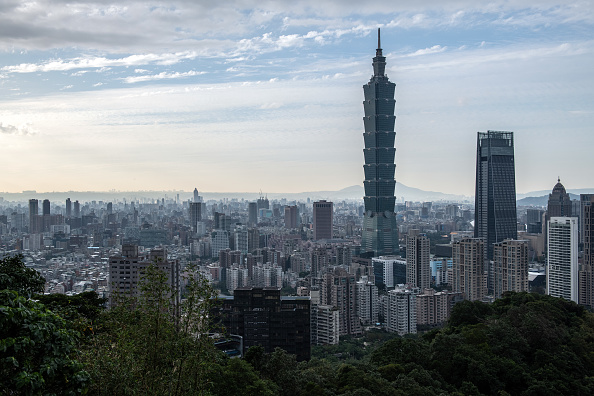US team heads to Taiwan as island slams China’s ‘fallacious’ election comments

Taiwan has condemned what it said were “fallacious comments” by China following the self-governing island’s presidential and parliamentary election on Saturday.
The verbal sparring did not bode well for the future of Taiwan’s relations with China under the winner, president-elect Lai Ching-te, also known as William Lai, or for China’s relations with the United States.
The US said it has asked two former officials to go to Taiwan this week for post-election meetings with political leaders, a move that is likely to displease China.
Former national security adviser Stephen Hadley and former deputy secretary of state James Steinberg will arrive in Taipei on Monday and have meetings on Tuesday, the American Institute in Taiwan said in a news release.
The institute is the de-facto American Embassy, since the US does not have formal diplomatic relations with Taiwan.
Mr Lai’s victory means the Democratic Progressive Party will continue to hold the presidency for a third four-year term, following eight years under president Tsai Ing-wen.
China portrays the party as its nemesis and a major obstacle to its goal of bringing the island of 23 million people under its control.
A statement from Taiwan’s Foreign Ministry accused China’s Foreign Ministry and its Taiwan Affairs Office of falsehoods in the respective statements they issued on Saturday night after the results of the election were announced.
It took issue specifically with China’s often-repeated line that Taiwan is a domestic Chinese issue. China regards Taiwan as a renegade province and says it should not even have a foreign ministry or any official relations with foreign governments.
The Chinese Foreign Ministry said in its statement: “The Taiwan question is China’s internal affair. Whatever changes take place in Taiwan, the basic fact that there is only one China in the world and Taiwan is part of China will not change.”
Taiwan said that statement “is completely inconsistent with international understanding and the current cross-strait situation. It goes against the expectation of global democratic communities and goes against the will of the people of Taiwan to uphold democratic values”, adding: “Such cliches are not worth refuting.”
Mr Lai, who will take office in May, won a three-way race for president with 40% of the vote, less than the clear majority Mr Tsai won in 2020.
Their Democratic Progressive Party lost its majority in the legislature, finishing with one seat fewer than the Kuomintang, or Nationalist Party.
Neither holds a majority, giving the Taiwan People’s Party – a relatively new force that won eight of the 113 seats – a possible swing vote on legislation.
The statement from the Taiwan Affairs Office in China said the results showed that the Democratic Progressive Party does not represent mainstream public opinion on the island.
Chen Binhua, a spokesman for the State Council Taiwan Affairs Office, said: “Our stance on resolving the Taiwan question and realising national reunification remains consistent, and our determination is rock-solid.”
Taiwan’s Foreign Ministry, in its response, called on China “to respect the election results, face reality and give up its oppression against Taiwan”.
The Chinese military regularly sends fighter jets and warships into the skies and waters near Taiwan. Any conflict could draw in the US, which is Taiwan’s main supplier of military equipment.
Associated Press
